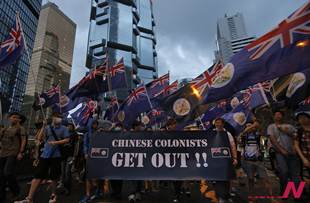
Thousands of Hong Kong residents call for promised democratic reforms
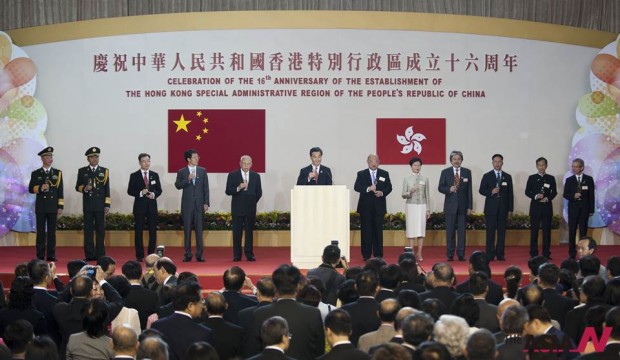
Tens of thousands of Hong Kongers took to the streets in protest Monday, demanding their widely disliked Beijing-backed leader resign and pressing for promised democratic reforms so they can choose their own top representative.
The annual protest march has become increasingly popular in recent years, underscoring the growing gulf between Hong Kong and the mainland 16 years after the city ceased to be a British colony and came back under Beijing’s control.
This year the protesters unleashed their anger at the performance of leader Leung Chun-ying, who has been beset by one controversy after another since he took office a year ago. Leung was not elected but instead picked by a committee of mostly pro-Beijing and pro-business elites.
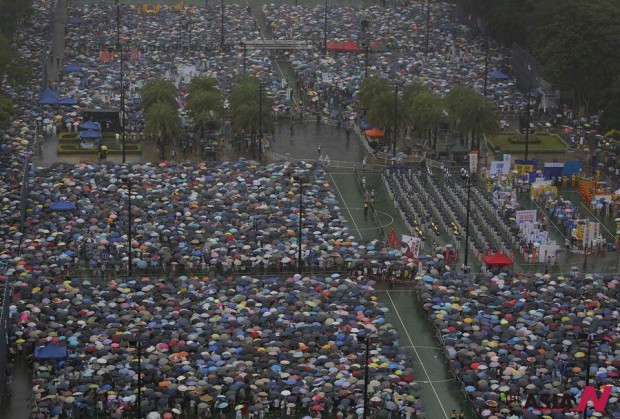
“One person, one foot! Kick Leung Chun-ying out!” organizers told the protesters, who braved sometimes heavy rain to gather at the march’s starting point in a central park. Protesters turned out despite a Korean pop music festival and other events that critics say were aimed at distracting people from taking part.
Organizers said 430,000 turned out, while police said 66,000 took part at the event’s peak. Hong Kong University researchers put the number at 88,000-98,000. In 2003, half a million people took to the streets to rally against a proposed anti-subversion law, which shocked Beijing and played a big role in the eventual resignation of the city’s then-leader, Tung Chee-hwa.
Beijing has pledged to let Hong Kongers pick their leader, known as the chief executive, no earlier than 2017 and the entire legislature by 2020. But residents of the city, now a special administrative region of China, are frustrated that there have been few signs of progress on drawing up an outline and some fear that it may never happen.
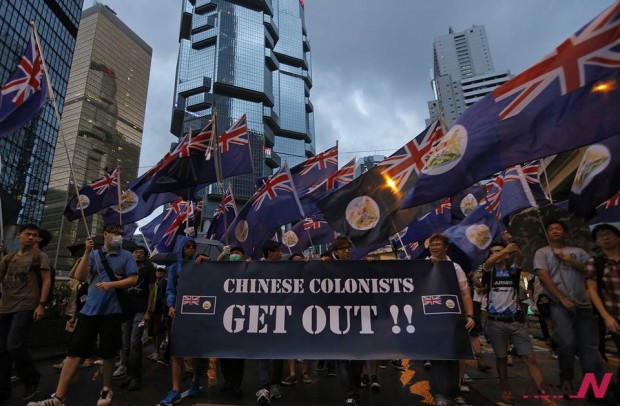
“Hong Kong people have been waiting too long for universal suffrage and for building a democratic city,” said Andrew Shum of Civil Human Rights Front, the group that organized the event. “Many people feel very angry.”
Speaking at a ceremony marking Hong Kong’s return to China, Leung said that the “government will launch a consultation at an appropriate juncture” on introducing full democracy. He later told reporters the government will listen “carefully” to protesters’ demands.
Leung’s popularity slumped to near an all-time low in mid-June, according to Hong Kong University pollsters.
Soon after taking office, Leung, a self-made millionaire who trained as a property surveyor, was hit by a scandal involving illegal additions to his mansion. Soon after, he outraged parents by trying to introduce Chinese patriotism classes that many saw as brainwashing.
More recently, Barry Cheung, a member of Leung’s Cabinet, was forced to step down from all his public posts after police launched an investigation into his upstart commodity exchange. Last week, Leung’s first development secretary, Mak Chai-kwong, was convicted in a rent fraud scam along with another government official.
Hong Kongers have also grown increasingly upset over stubbornly high property prices, which Leung has tried to combat with a set of cooling measures, and a growing influx of mainland Chinese visitors blamed for clearing out stocks of baby formula.
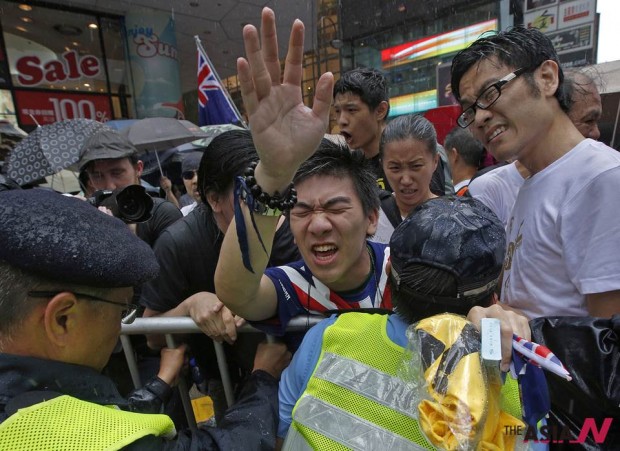
Protester K.M. Cheung, who works in the medical industry, said he thought Leung’s first year in office was a “complete failure.”
“He looks like he’s capable but he’s actually not,” the 53-year-old said, adding that he was upset because Leung was biased in favor of his own supporters and didn’t represent Hong Kong people.
Anxiety that Hong Kong will be denied full democracy has grown in recent months after Beijing officials said the city’s next leader must be acceptable to the central government, said Dixon Sing, an associate professor at Hong Kong University of Science and Technology.
“This message has ignited fears that they want a pseudo democracy, rather than a genuine democracy,” Sing said.
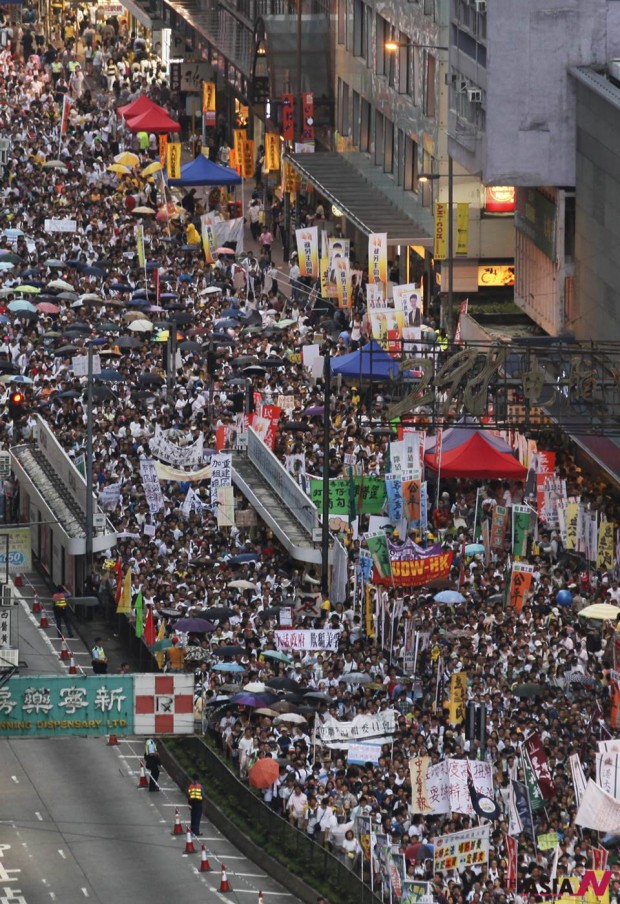
Protesters also voiced support for a proposal calling for at least 10,000 people to peacefully block roads in Hong Kong’s central business district in July 2014 if the government fails to an outline a plan for full democracy.
Hong Kongers at the protest also worried about the erosion of the high degree of autonomy from mainland China promised until 2047. Under the city’s mini-constitution, Hong Kong enjoys rights and freedoms not seen on the mainland but many fear they will be eaten away by mainland China’s growing influence.
One group carried a large banner that read “Chinese colonists get out!”
Ivan Pang said they were fighting to maintain Hong Kong’s autonomy from Beijing.
“They don’t want to respect our culture. They want to colonize us, they want Hong Kong to be one of the cities of China,” said Pang, a 21-year-old university graduate. “We can’t tolerate that. We want to take back control of Hong Kong.” <AP/NEWSis>


